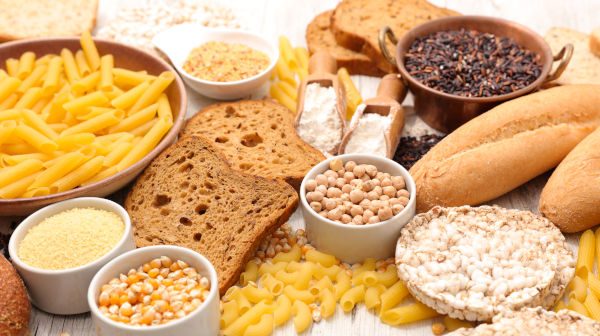A gluten-free diet has been a popular choice in recent years, but for about 1% of Americans, it isn’t a choice at all. Pizza, burgers, and even avocado toast can cause some serious problems for people with celiac disease who cannot eat gluten.
Celiac disease is a common condition, but diagnosing it can sometimes take years. The condition has a wide variety of symptoms that can be similar to those of other health problems.
Here’s what you should know about celiac disease:
What is celiac disease?
Celiac disease is an autoimmune disorder affecting the small intestine. When somebody with celiac disease consumes gluten, their immune system can attack the small intestine. The resulting damage makes it harder for the body to absorb nutrients from food.
Who is at risk?
You can be diagnosed with celiac disease at any age, and it affects both men and women. If you have a family member with celiac disease, your risk of getting the condition is higher. Specific genes are linked to this disease, so you can get genetic testing to find out if you might develop celiac disease. Your chances of getting it also increase if you have another autoimmune disease like type I diabetes.
How do I know if I have celiac disease?
Digestive issues might be the first clue that something is not right. Symptoms include bloating, diarrhea or vomiting. Weight loss, fatigue and delayed growth also are common in children with celiac disease, while adults can have iron-deficiency anemia, osteoporosis, and arthritis. Celiac disease is diagnosed with a blood test or biopsy of the intestine.
What foods contain gluten?
When you are diagnosed with celiac disease, you will have to make dietary changes to cut gluten out of your diet. Going gluten-free can be complicated, however, and requires diligence. Some sources of gluten can be easy to identify, like bread and pasta, but it can be hidden in some surprising foods. Other places you might find gluten include processed meats, sauces, flavorings and contaminated dishes and utensils. You will need to carefully check labels and clean properly to remove traces of gluten.
“Transitioning to an entirely gluten-free diet can be difficult for seniors who have been diagnosed with celiac disease, especially for those who do not live independently,” says Sarah Hilton, a registered nurse. “Nutrition education is vital for the patient, as well as family members and caregivers, to ensure proper meal preparation and avoid serious complications.”
Can celiac disease be cured?
Celiac disease cannot be cured, but symptoms can get better once a person has been diagnosed. Your new gluten-free diet is a lifelong commitment. After gluten is removed from a person’s diet, the small intestine begins to heal. It can take some time for the damage to the intestine to be repaired — from a few months to a year or two for older adults.
Celiac disease can have a big impact on your life. Cutting gluten from your diet is no small task, but it is still possible to enjoy delicious gluten-free foods. Talk to your doctor before you make any changes to your diet and get tested for celiac disease if you are experiencing symptoms.
A version of this article was published by The Daily Herald. It has been republished here with permission.




